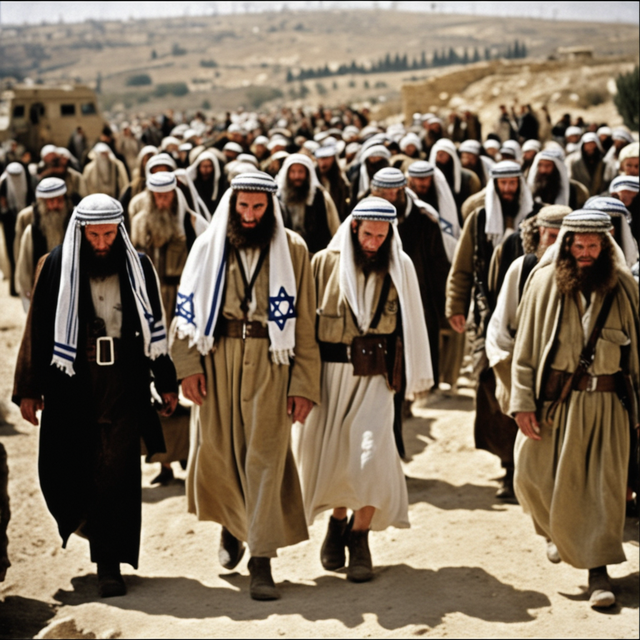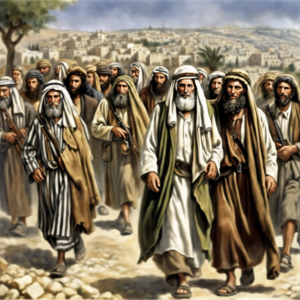Is the Current Middle East Conflict the War Prophesied in Ezekiel 38-39?


As tensions rise and conflict erupts in the Middle East, many are pondering whether these events are the precursor to the prophetic war detailed in the book of Ezekiel, chapters 38 and 39, popularly known as the “War of Gog and Magog.” To explore this, we will delve into the specifics of these biblical prophecies and assess their potential relevance to current developments.
Contextual Understanding
The book of Ezekiel, written around the 6th century BCE, captures the visions and messages of Ezekiel, a prophet during the time of the Babylonian exile. Chapters 38-39 of Ezekiel describe an apocalyptic war that will involve Israel and various other nations.
Four Key Factors
1. Return of the Jews to Israel
Ezekiel 38:8 speaks of the Jewish people returning to the land of Israel. This part of the prophecy has seemingly come to pass with the modern establishment of the State of Israel in 1948 and the ongoing Aliyah.
2. Peace in Israel
Before the conflict begins, Israel will be living in a state of security or perceived security (Ezekiel 38:11). The current normalization of relations between Israel and some of its Arab neighbors could be seen as a partial fulfillment of this aspect.
3. Spoils of War
The coalition led by Gog is motivated by the spoils that they anticipate gaining from Israel (Ezekiel 38:12). Israel’s technological advancement and natural resources such as natural gas could be interpreted as fulfilling this condition.
4. Coalition of Nations
Ezekiel 38:1-6 lists a specific coalition of nations: Magog, Rosh, Meshech, Tubal, Persia, Cush, and Put.
Modern Equivalents
- Magog: Often identified with modern-day Russia or possibly some of the Turkic tribes north of the Caucasus Mountains.
- Rosh: Sometimes identified with modern Russia.
- Meshech and Tubal: Generally considered to be in the region of modern Turkey.
- Persia: Now modern-day Iran.
- Cush: Generally considered to be modern Sudan or possibly Ethiopia.
- Put: Often associated with countries in North Africa, possibly modern-day Libya.
Although some of these nations are openly hostile to Israel, the precise coalition described has not yet formed in a coordinated military action against Israel.
Expanded Related Scriptures
Isaiah 17
Isaiah 17 prophesies the complete destruction of Damascus, a significant theme when considering Israel’s position and the broader regional landscape. This prophecy remains unfulfilled.
Psalm 83
This Psalm describes a confederation of nations conspiring against Israel. While the atmosphere resonates with modern-day hostilities, the exact alignment of nations has not yet manifested.
Zechariah 12:3
This scripture predicts a time when Jerusalem will be a burdensome stone for all nations. Although Jerusalem remains a focal point of international tension, a universal siege against it as described has yet to occur.
Conclusion
When scrutinizing the elements of Ezekiel 38-39 in the context of current events, we find both alignments and yet-to-be-fulfilled elements. For the prophecy to fully come to fruition, the specific coalition of nations described must form under a leader known as Gog, and Israel must be in a state of complete peace before this attack.
These and possibly other specific elements must align perfectly for the prophecy to fully materialize. Until that time, this remains a topic of intense debate and analysis, urging both believers and scholars to remain vigilant about unfolding developments in the Middle East and their potential biblical implications.

